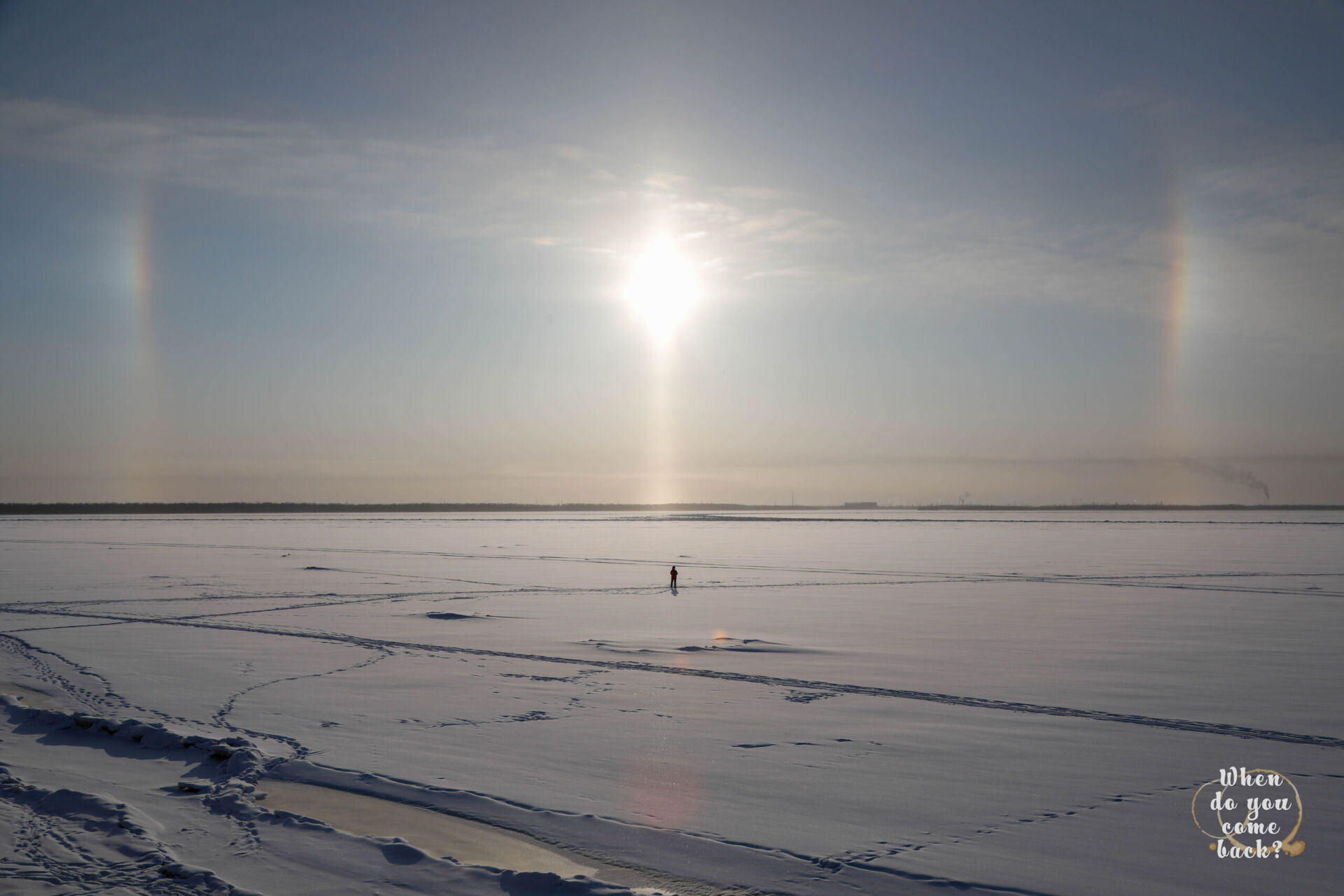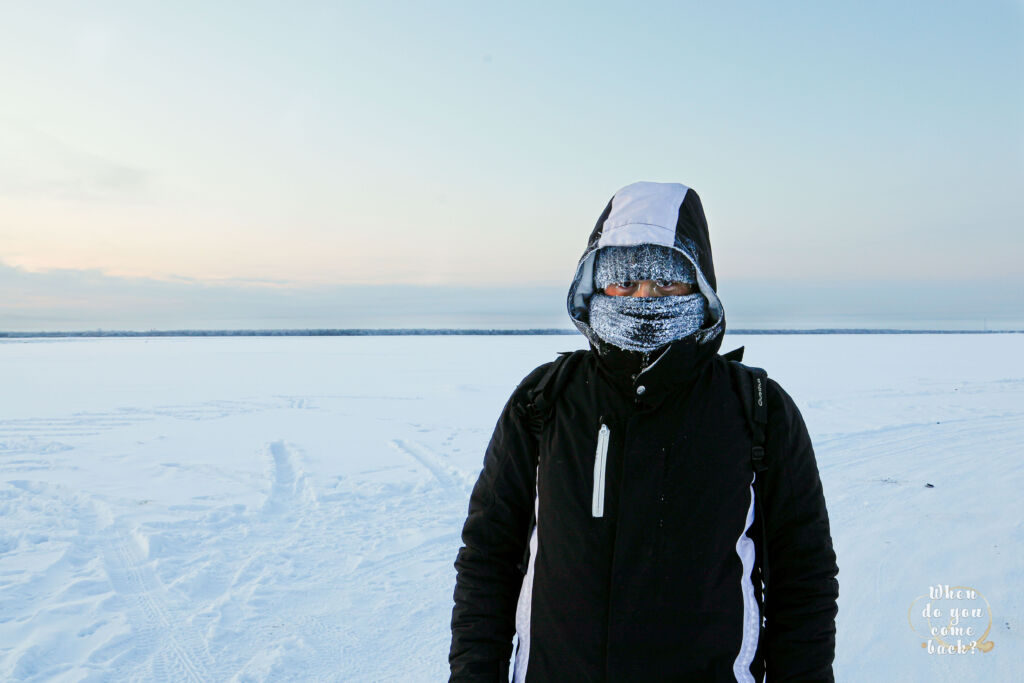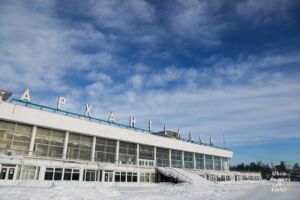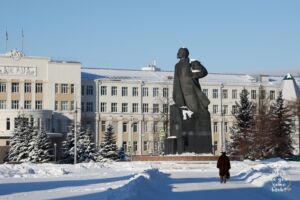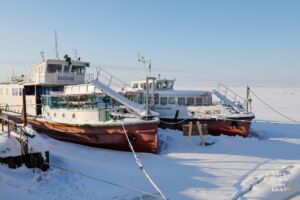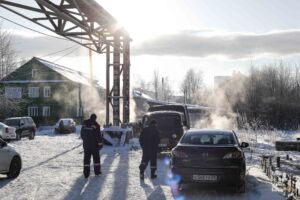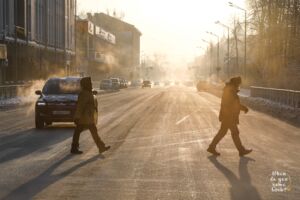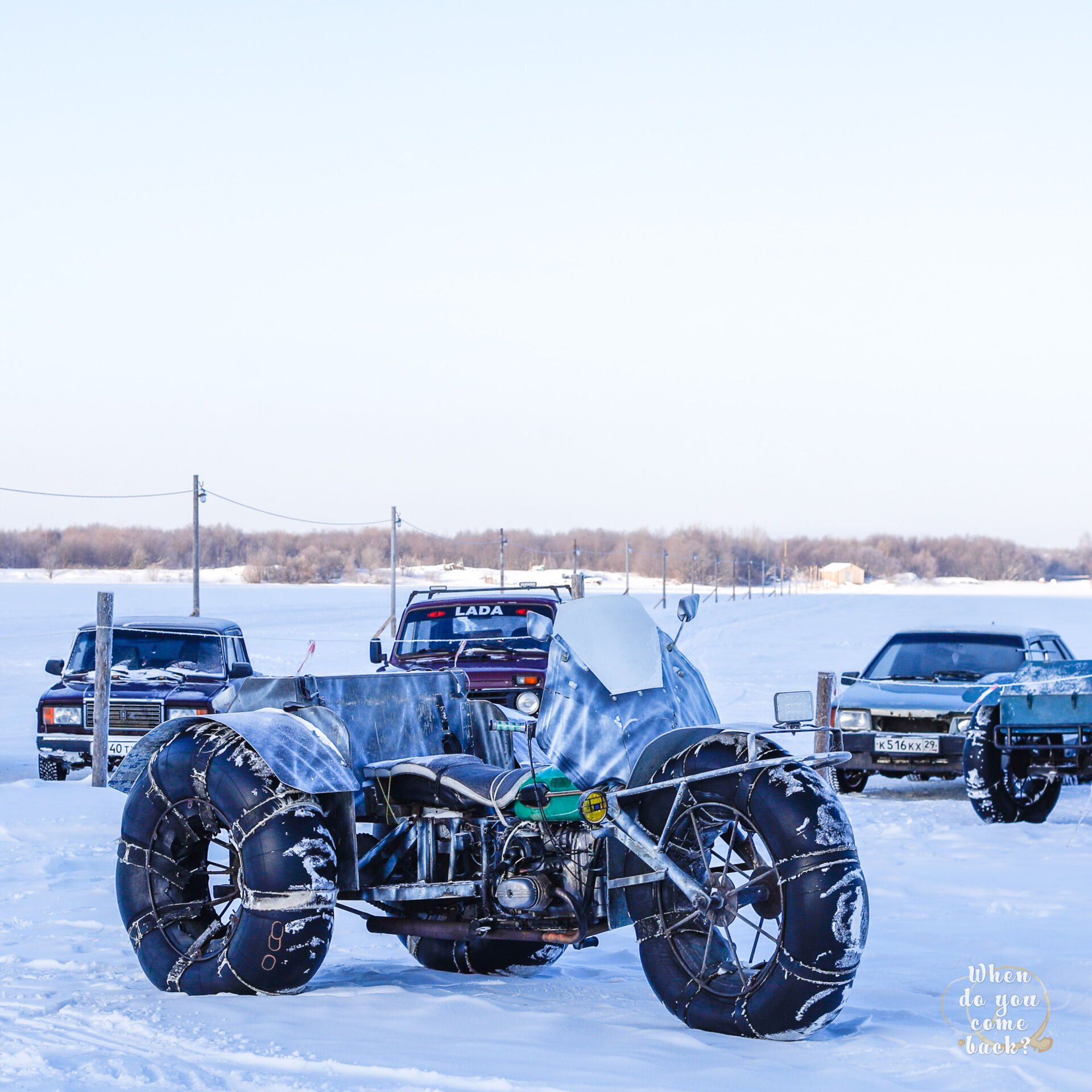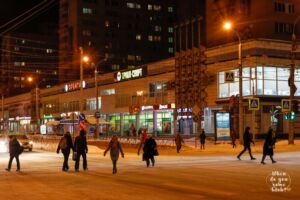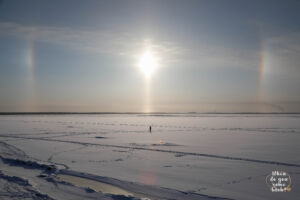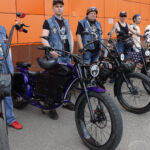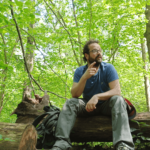You can read this article in Italian on L’Ordinario magazine.
Click here to read the second part
The curtain of the train window is closing, there are a few of us in the queue waiting to get on the carriage. The person in charge of passport control opens the door, puts the platform, and after a first very quick misunderstanding due to the translation of my passport, I get on the third class carriage 16 (plazcart) and I prepare my bed number 29 which will welcome me for the next twenty hours to Moscow.
Cold is the northern Russia
Thus ends my trip to Arkhangelsk, a city at the mouth of the Dvina River on the White Sea, in the north of Russia. A week of sun and extreme cold. Temperatures fluctuated between -25 ° C and -40 ° C, let’s say you didn’t want to spend hours outdoors despite the beautiful sun and the intense blue sky. Despite this, nothing prevented me from taking long walks through the icy streets of the city. I spent hours watching and feeling the ice movings under my feet as I walked across the river. The surface is completely frozen and, in winter, various types of vehicles are used for the crossing: cars, snowmobiles, three-wheeled motorcycles such as those seen in the summer on the Romagna Riviera and of course on foot. Controlled and illuminated routes are drawn between the city and the islands of the estuary. Now I’m on the train and the first thought that comes to my mind is: how do I describe this city?
Russian cities are almost all the same; out from the classic tourist destinations, the architecture hardly changes. The Soviet-style buildings that were built in the last century are the same almost everywhere. There is the square with the town hall, the statue of Lenin with vaguely the same pose and expression that you have seen thousands of times, large avenues lined with monumental public buildings, and then the residential neighborhoods with brick or concrete houses with five floors or more. . Today, modern residential complexes are being built with thirty-story buildings which, although colorful, do not have a soul of their own. Arkhangelsk, however, has kept many buildings from the pre-Soviet era: it may be the frost or the renovations made, but the city is sprinkled with two or three floors wooden houses that give a sense of history to the city center. The main pedestrian street is lined with traditional houses making it a pleasant museum of northern architecture. That said, I don’t like making a list of things seen and done, a cold, impersonal list. For a long time, I have been analyzing the relationship that exists between people and places, when I visit a new place my main purpose is to meet its inhabitants. That’s why, just as the train leaves the train station to immerse itself in the Russian tundra, I decided to tell you about the encounters made and how I felt warmed by the human warmth I found in the city despite the arctic temperatures.
The museum of the city
Being Italian in Russia, when traveling outside the tourist destinations, often has its advantage; people love Italy and Italians, at least what they know. In all conversations one of the first questions is: where are you from? It is normal, my Russian is poor, they hear a different accent and are often not used to meeting foreigners. To my reply that I am Italian, the facial expressions change drastically: a mixture of curiosity and happiness appears on the face and normally a sense of welcome typical of human beings is triggered regardless of latitude, the person in front of me relaxes and opens up. The first meeting took place at the ethnographic museum of the Pomorie region, the Arkhangelsk region. Already at the delivery of my jacket to the cloakroom – it is customary to undress when entering any closed place, be it shopping centers, museums, schools or private homes. Indoor temperatures are often well above 20 ° C – the big question has come. Here we are, for the entire visit to the museum, volunteers and employees took turns to illustrate the collection and the historical events of the region with kindness but firmness. When they understand that I can communicate in Russian, it becomes much easier and they treat me like a son, no matter the age of my interlocutor. I start with the anthological exhibition of Abramov, an important novelist from the area. The explanation is very detailed and interesting, the volunteers take turns one by one to explain the contents of the various rooms, they are very proud to show their culture, especially to a foreigner. I am very interested and flattered by the attention received. After two hours I say goodbye and I am happy, content, relaxed. This warmth received by the museum workers has already changed my perception of Russia. Unfortunately, in megacities such as Moscow, as in other similar cities in the world, humanity has almost been lost, cities are suffocating people. Everyone is immersed in their own problems and survival. Big cities are inhuman and this affects daily life.
Arkhangelsk has about 350,000 inhabitants, an average Italian city, I’m not saying everyone knows each other, but often after work people meet for a beer, a coffee, a tea before going home. Transportation times are not hours like in Moscow and in twenty minutes you can go out to meet a friend.
Traditional food and chats
It’s about five o’clock and, in the parking lot in front of the bank, I wait for Katya: she promised me a restaurant outside the city with typical northern cuisine, a proposal that is impossible to refuse. We arrive at the restaurant after about half an hour by car and a short stop at the ski stadium: a circuit of several kilometers in the forest illuminated even at night and free of charge, people can practice cross-country skiing. Katya is a young woman with intense and determined eyes. She tries to educate her two almost teenage daughters to an open world view. She travels in a similar way to me, avoids stereotypes and hopes for a more open and free world for everyone. She clashes with traditional patriarchal society on a daily basis, but she has clear ideas! Despite the difficulties due to the pandemic, she finds a way to build something for herself and her children.
The conversation is as pleasant and intense as it can only be between two people who have just met, this is also the magic of travel. We talk about everything, private lives, dreams and wishes. The waiter takes the orders and for me comes the three fish ukha soup with a small bread with cheese inside. The second dish is pelmeny, typical Russian ravioli in this case stuffed with bear meat. Perhaps it may scandalize some, but this is traditional northern cuisine. The evening with Katya ends with the promise to meet again one day, who knows, I really hope so.

